- Home
- Blog
- Women Care
Menopause Mood Swings Can be Difficult to Handle! Here’s How You Can Manage It Better
Women Care
Menopause Mood Swings Can be Difficult to Handle! Here’s How You Can Manage It Better
By Apollo 24|7, Published on- 06 June 2022, Updated on -18 October 2022
Share this article
0
0 like

Just like menstruation, menopause is a natural phenomenon usually seen in women approaching middle age. Menopause marks the end of periods, which occurs when the ovaries (primary female sex organs) stop releasing eggs for 12 consecutive months, followed by a decline in the sex hormones in the body.
Usually, a woman experiences menopause at the age of 45 to 55 years (the age can vary for each woman), however, women who had undergone hysterectomy (uterus removal) or surgery to remove ovaries, may experience menopause early. After menopause, a woman cannot get pregnant naturally. Menopause can be divided into three stages; perimenopause (beginning of the transition into menopause), menopause (complete loss of periods), and postmenopause (the symptoms of menopause begin to subside). Each of these stages can exhibit different symptoms. This article addresses menopause symptoms and the ways to deal with them in detail below.
What are the symptoms of menopause?
The first few years of menopause can be difficult as women can experience some symptoms such as:
- Drying of skin, eyes or mouth
- Thinning of hair
- Hot flashes (short feelings of warmth, felt over the face, neck and chest, leaving the person red and sweaty)
- Night sweats (experiencing sudden warmth as night followed by a chilled feeling)
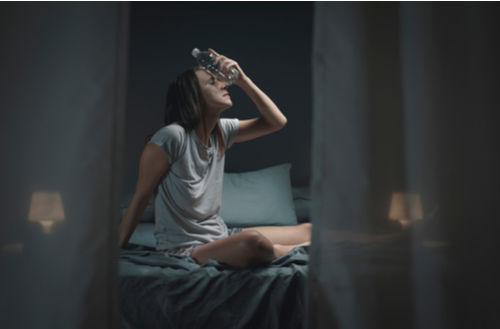
- Inability to sleep at night (insomnia)
- Suddenly racing heart (palpitations)
- Loss of vaginal elasticity
- Dryness of the vagina due to decreased vaginal secretions
- Pain or discomfort while having sexual intercourse
- Low sex drive
- Atrophy (thinning) of the mucous lining of the urethra (the organ that releases urine out from the body), urinary bladder, vagina and vulva
- Leakage of urine on slightest pressure like on coughing or sneezing (stress urinary incontinence)
- Recurrent urinary tract infections
- Pain and stiffness in the joints
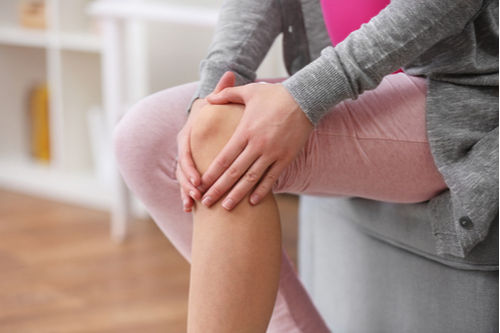
- Irritability and mood swings
- Persistent headaches
- Weakened memory and inability to concentrate
- Anxiety
- Depression
It must be noted that every woman would not experience all the symptoms of menopause. The intensity of the symptoms can vary from person to person.
How can one deal with the symptoms of menopause?
The ways to deal with the symptoms of menopause include:
1. Hormone replacement therapy (HRT)
While estrogen maintains the bone density, temperature of the skin and vaginal moisture, progesterone maintains the inner lining of the uterus (endometrium). Hormone replacement therapy (HRT) is the treatment where the woman is supplemented with progesterone and estrogen, which are no longer produced by the ovaries after menopause. These artificial hormones relieve the symptoms of menopause by mimicking the ones released by the human body. Though long-term use of HRT has been associated with an increased risk of blood clots and heart problems, short-term HRT has been remarkably effective in treating hot flashes.

2. Measures to deal with hot flashes
Those who do not wish to go for HRT can follow some other measures such as:
- Avoid the triggers of hot flashes which include hot beverages, caffeine, hot or spicy food, warm temperatures, alcohol, stress and certain medications.
- Dress in layers so that extra garments can be taken off when needed.
- Sleep in a room that is comparatively cooler to prevent night sweats.
- While sleeping, keep a frozen cold pack under the pillow, so that the pillow can be turned over whenever an episode of hot flash is experienced.
- Practice a breathing technique called paced respiration as research says it can reduce the frequency of hot flashes to half. To perform paced respiration, one needs to inhale and exhale slowly while expanding and contracting the abdomen gently. About six to eight breaths must be taken every minute. The technique must be practised twice a day for 15 minutes or before an episode of a hot flash.
- Include soybeans, chickpeas, lentils, flaxseeds, whole grains, fruits and green vegetables in the diet to reduce the frequency of hot flashes.

3. Approaches to relieve vaginal dryness
Things that can help reduce vaginal dryness post-menopause include:
- Estrogen vaginal gels can be applied inside the vagina to reduce vaginal dryness.
- Estrogen rings can also be placed inside the vagina to treat vaginal dryness.
- Vaginal moisturizers can also be used to reduce dryness.
- Studies reveal regular sexual stimulation can also help in maintaining vaginal elasticity and keep the vagina healthy.
- The use of water-based vaginal lubricants can help relieve the pain experienced during sexual intercourse.
4. Improving mental health
The hormonal imbalance during menopause may take a toll on mental health. Things that may help deal with it include:
- Practice yoga, meditation and martial art forms like Tai chi to reduce anxiety, improve your mood and sleeping pattern.

- Cognitive behavioural therapy (a type of psychotherapy) can be considered to improve the low mood, anxiety and signs of depression.
- Anti-anxiety and anti-depressant medications can be taken after consulting the doctor.
5. Ways to maintain bone health
The risk of suffering from osteoporosis and other bone-related diseases increases in women after menopause. Thus, certain things that may help maintain the bone mass in women, include:
- Consuming a balanced diet rich in proteins and calcium-rich foods such as low-fat milk, cheese and yoghurt.
- Getting some sunlight daily promotes the production of vitamin D in the body. Vitamin D is required for the absorption of calcium in the body.
- Quitting smoking and reducing the consumption of alcohol to one drink a day.
6. Dealing with urinary incontinence
Things that can help deal with this situation include:
- Reducing the consumption of beverages such as coffee, tea, and alcohol as they retain more water in the body, thus increasing the frequency of urination.
- Practising Kegel exercises involves repeated contraction and relaxation of the pelvic floor muscles, which also help in holding the urine.
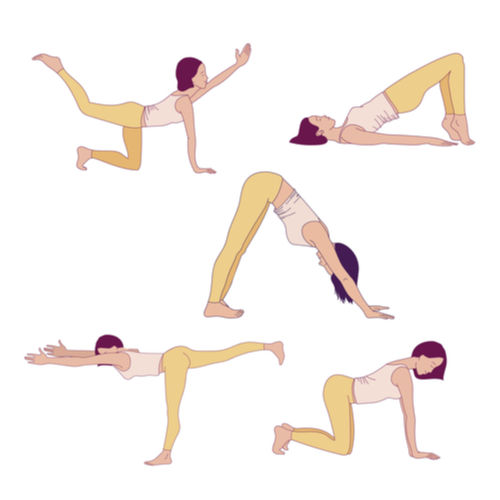
While hormone replacement therapy (HRT) is considered to be the most effective treatment to relieve menopausal symptoms, other measures that may help are regular exercise, eating healthy food, and quitting harmful habits such as smoking and drinking alcohol. Some women also experience irregular intrauterine bleeding as they approach menopause (premenopause phase). Though, it is normal in 90% of the cases, in case of any major abnormality in the period cycle consult a gynaecologist.
Medically reviewed by Dr Sonia Bhatt
Services
Women Care
Leave Comment
Services
Recommended for you
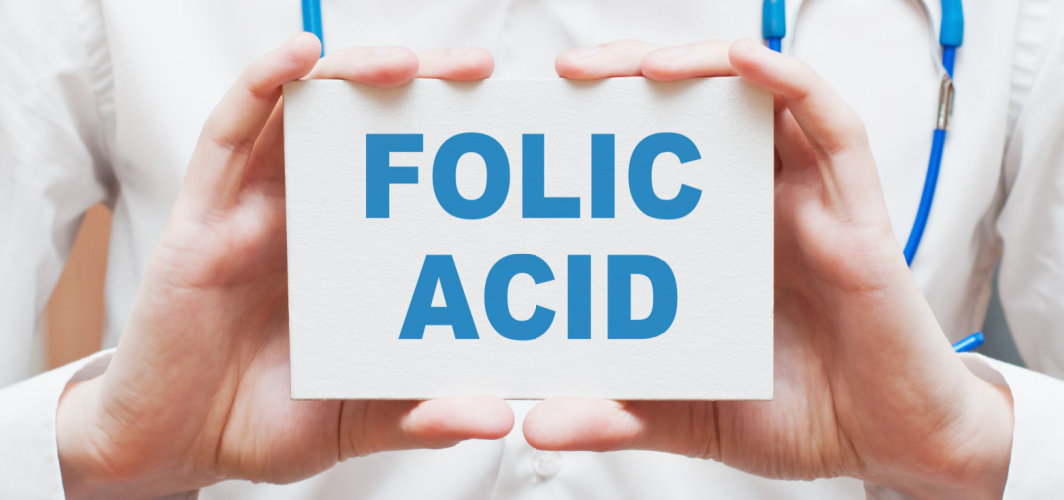
Women Care
Managing Iron Deficiency With Orofer XT
Learn about the uses, side effects and precautions of Orofer XT. Stay informed about the latest guidelines and technologies related to this medication.
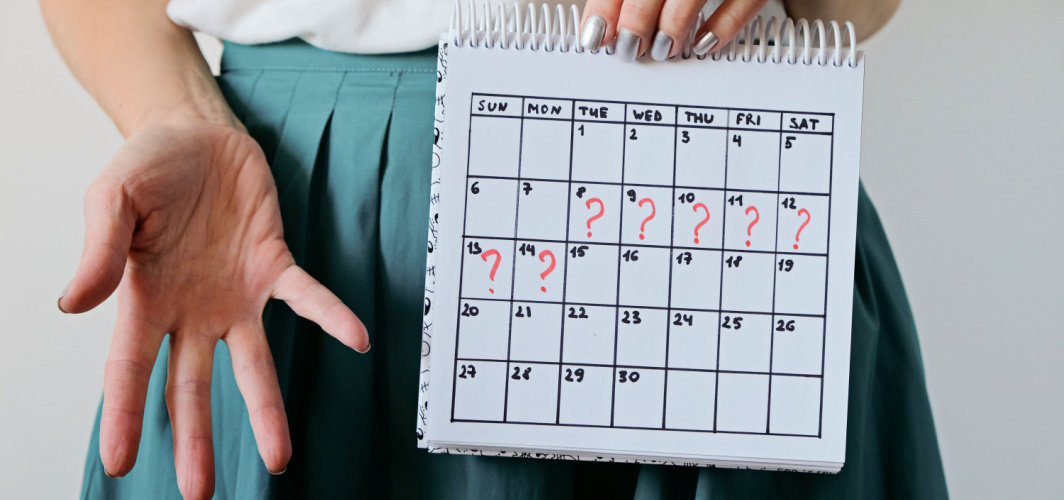
Women Care
Have You Missed Your Periods Lately? These Can Be The Reasons!
While several reasons can result in missed periods, the major ones include stress, pregnancy, hormonal changes, and lifestyle choices. Leading a healthy lifestyle and timely consultations with a gynaecologist can help in ensuring a steady menstrual cycle.

Women Care
Dear Women, This Is Exactly Why You Can’t Go Low On Potassium!
This article focuses on determining the daily requirements for potassium in women and the negative effects of taking too much or too little of it.
Subscribe
Sign up for our free Health Library Daily Newsletter
Get doctor-approved health tips, news, and more.

